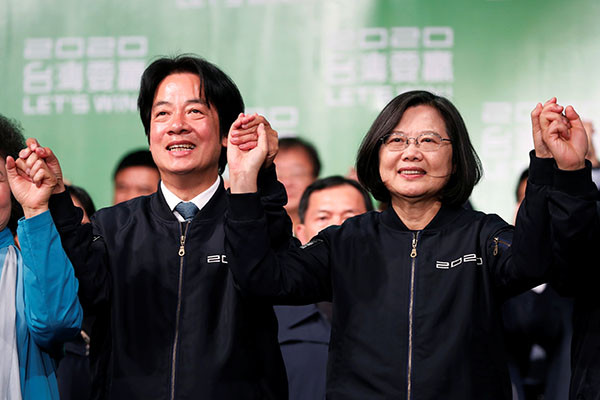A high-level delegation from the Trump administration will pay an official visit to the Republic of China, or Taiwan, in spite of opposition from China.
Health and Human Services Secretary Alex Azar will lead a team of officials to Taiwan within the week. He will meet Taiwan President Tsai Ing-wen.
The Americans will discuss the COVID-19 pandemic with Tsai and with Taiwan government and health officials. Azar will discuss a response to the pandemic, international health, the U.S.-Taiwan partnership and Taiwan's role as a supplier of medical equipment.
"Taiwan has been a model of transparency and cooperation in global health during the COVID-19 pandemic and long before it," said Azar.
Azar will convey U.S. President Donald Trump's support for Taiwan's international health leadership. He said the trip was an opportunity to strengthen America's economic and public health cooperation with Taiwan - "especially as the U.S. and other countries work to strengthen and diversify our sources for crucial medical products."
Taiwan's success against the pandemic and its role in the international community is "critical," HHS said in a statement.
HHS said Azar's visit would "celebrate the shared values" of the two democracies. Azar said the American visit underlines "our shared belief that free and democratic societies are the best model for protecting and promoting health."
HHS said the trip was part of the Taiwan Travel Act, which president Donald Trump signed into law in 2018 to strengthen the two countries' relationship.
Azar is the first U.S. cabinet member to visit Taiwan in six years since former Environmental Protection Agency administrator Gina McCarthy visited in 2014. Political experts said the trip is the most significant visit by a U.S. cabinet member since the U.S. formally severed relations with Taiwan in 1979 under former president Jimmy Carter.
Accompanying Azar will be Dr. Mitch Wolfe, chief medical officer of the U.S. Centers for Disease Control and Prevention, and James Moriarty, former U.S. ambassador to Bangladesh who now chairs the American Institute in Taiwan.
China's Ministry of Foreign Affairs on Wednesday declared it firmly opposed official interaction between Taiwan and the U.S. It said it had lodged "stern representations" with the U.S. about the visit.
State-controlled news media said China encouraged the U.S. "not to send the wrong signals to Taiwan secessionists."






